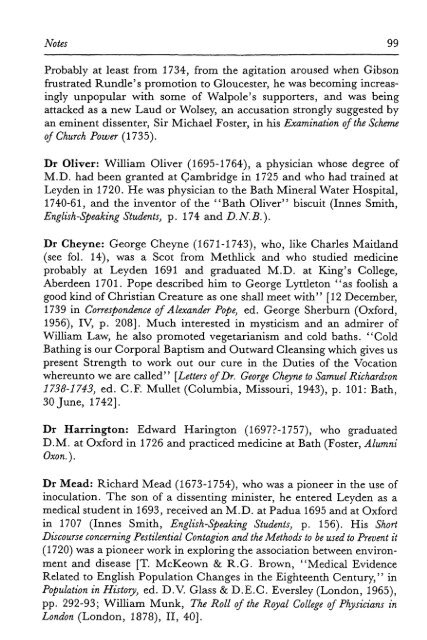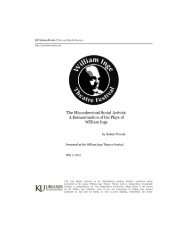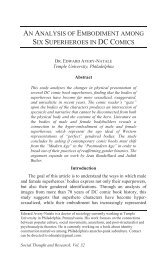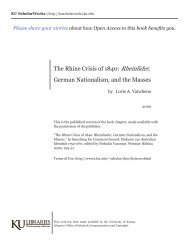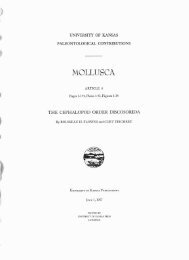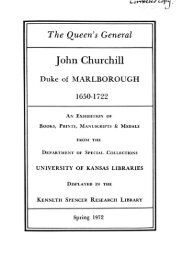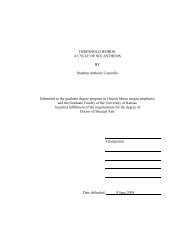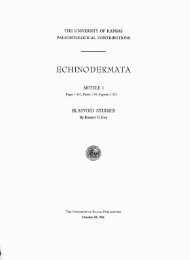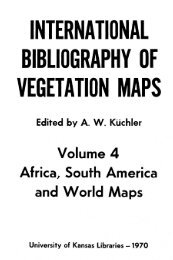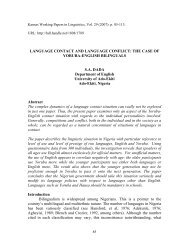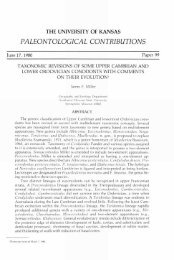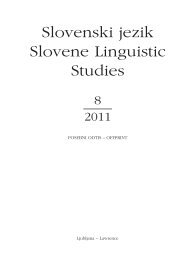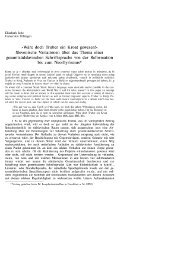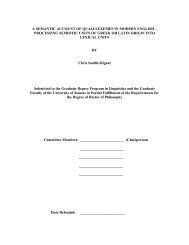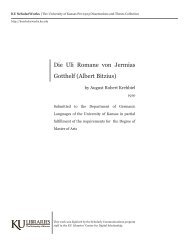Archbishop of Canterbury - KU ScholarWorks - The University of ...
Archbishop of Canterbury - KU ScholarWorks - The University of ...
Archbishop of Canterbury - KU ScholarWorks - The University of ...
Create successful ePaper yourself
Turn your PDF publications into a flip-book with our unique Google optimized e-Paper software.
Notes 99<br />
Probably at least from 1734, from the agitation aroused when Gibson<br />
frustrated Rundle's promotion to Gloucester, he was becoming increasingly<br />
unpopular with some <strong>of</strong> Walpole's supporters, and was being<br />
attacked as a new Laud or Wolsey, an accusation strongly suggested by<br />
an eminent dissenter, Sir Michael Foster, in his Examination <strong>of</strong> the Scheme<br />
<strong>of</strong> Church Power (1735).<br />
Dr Oliver: William Oliver (1695-1764), a physician whose degree <strong>of</strong><br />
M.D. had been granted at Cambridge in 1725 and who had trained at<br />
Leyden in 1720. He was physician to the Bath Mineral Water Hospital,<br />
1740-61, and the inventor <strong>of</strong> the "Bath Oliver" biscuit (Innes Smith,<br />
English-Speaking Students, p. 174 and D.N.B.).<br />
Dr Cheyne: George Cheyne (1671-1743), who, like Charles Maitland<br />
(see fol. 14), was a Scot from Methlick and who studied medicine<br />
probably at Leyden 1691 and graduated M.D. at King's College,<br />
Aberdeen 1701. Pope described him to George Lyttleton "as foolish a<br />
good kind <strong>of</strong> Christian Creature as one shall meet with" [12 December,<br />
1739 in Correspondence <strong>of</strong> Alexander Pope, ed. George Sherburn (Oxford,<br />
1956), IV, p. 208]. Much interested in mysticism and an admirer <strong>of</strong><br />
William Law, he also promoted vegetarianism and cold baths. "Cold<br />
Bathing is our Corporal Baptism and Outward Cleansing which gives us<br />
present Strength to work out our cure in the Duties <strong>of</strong> the Vocation<br />
whereunto we are called" [Letters <strong>of</strong> Dr. George Cheyne to Samuel Richardson<br />
1738-1743, ed. C.F. Mullet (Columbia, Missouri, 1943), p. 101: Bath,<br />
30 June, 1742].<br />
Dr Harrington: Edward Harington (1697P-1757), who graduated<br />
D.M. at Oxford in 1726 and practiced medicine at Bath (Foster, Alumni<br />
Oxon.).<br />
Dr Mead: Richard Mead (1673-1754), who was a pioneer in the use <strong>of</strong><br />
inoculation. <strong>The</strong> son <strong>of</strong> a dissenting minister, he entered Leyden as a<br />
medical student in 1693, received an M.D. at Padua 1695 and at Oxford<br />
in 1707 (Innes Smith, English-Speaking Students, p. 156). His Short<br />
Discourse concerning Pestilential Contagion and the Methods to be used to Prevent it<br />
(1720) was a pioneer work in exploring the association between environment<br />
and disease [T. McKeown & R.G. Brown, "Medical Evidence<br />
Related to English Population Changes in the Eighteenth Century," in<br />
Population in History, ed. D.V Glass & D.E.C. Eversley (London, 1965),<br />
pp. 292-93; William Münk, <strong>The</strong> Roll <strong>of</strong> the Royal College <strong>of</strong> Physicians in<br />
London (London, 1878), II, 40].


